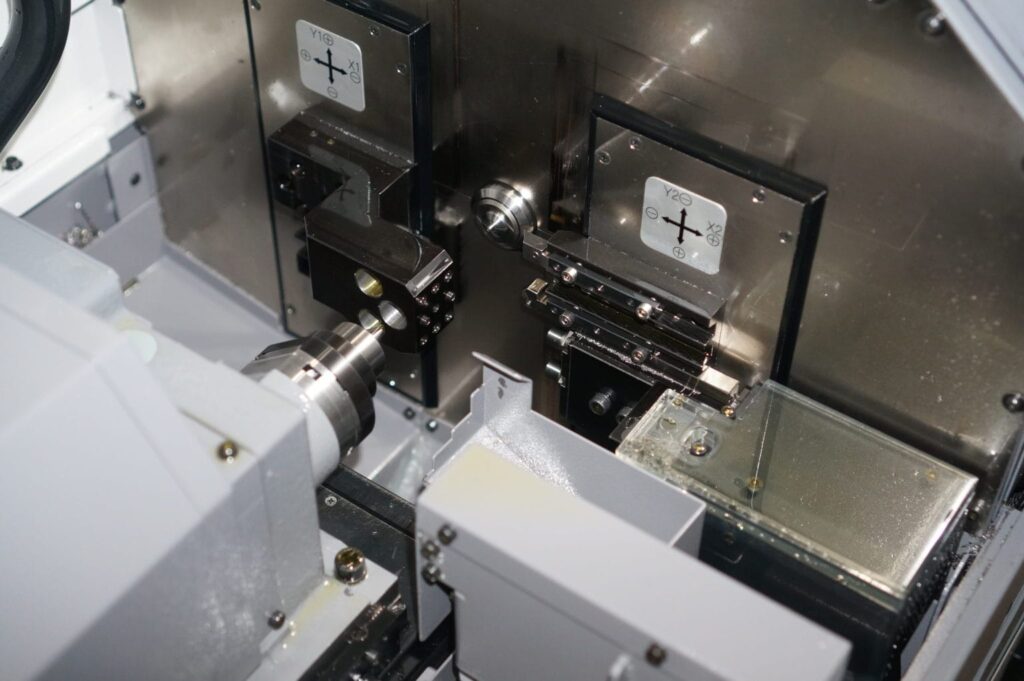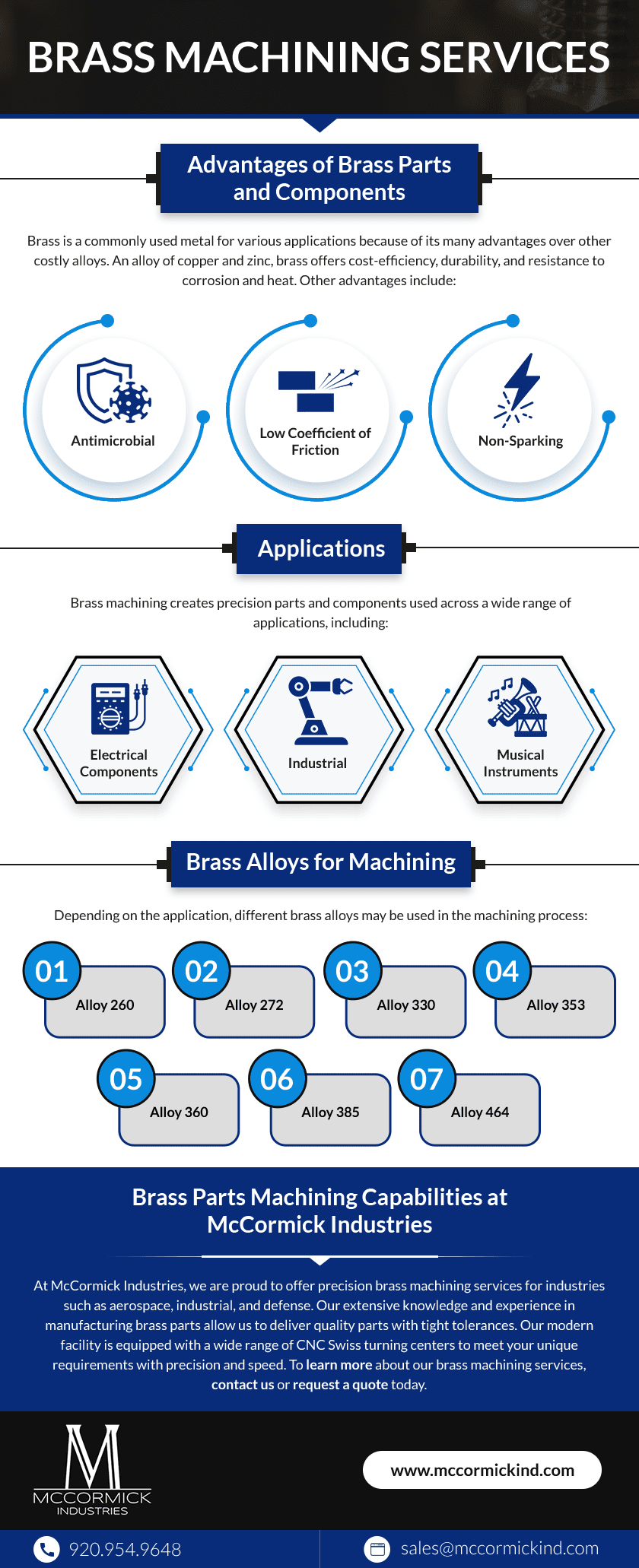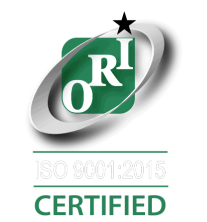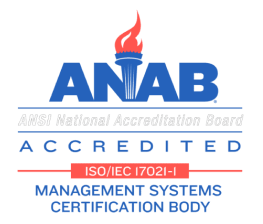Brass Machining Services
McCormick Industries’ brass precision CNC Swiss turning capabilities offer high speed and extreme accuracy for parts up to 1.25″ in diameter. Our lathes feature up to 9 axes of motion, and we are capable of holding ultra-precise dimensional tolerances to ±.0001′′. With live tooling and multi-axis capabilities, we can perform multiple brass machining tasks from a single set-up, while simultaneous axis control allows for increased precision during operations such as turning, pinch milling, and ID/OD threading.
Brass offers many key benefits, making it suitable for applications ranging from plumbing to musical instruments and more. Specializing in the precision machining of small components, McCormick Industries can produce parts in a variety of brass alloys to meet the needs of your application.
Advantages of Brass Parts and Components
Brass is a commonly used metal for various applications because of its many advantages over other costly alloys. An alloy of copper and zinc, brass offers cost-efficiency, durability, and resistance to corrosion and heat. Other advantages include:
- Antimicrobial. With its natural antimicrobial properties, brass is widely popular for medical applications.
- Low coefficient of friction. Brass’s low coefficient of friction makes it the ideal material for applications such as bearings, gears, and locks.
- Non-sparking. Brass is non-sparking, making it suitable for components used in potentially flammable or explosive environments.
Brass Machining Applications
Brass machining creates precision parts and components used across a wide range of applications, including:
- Electrical Components. With its high corrosion resistance and electrical conductivity, brass provides benefits for electrical components. Manufacturers use brass parts for both domestic and industrial electrical equipment.
- Plumbing. Since brass is capable of resisting corrosion from liquid elements, it is commonly used in various plumbing components.
- Musical Instruments. Brass exhibits good malleability and acoustic properties, making it a suitable material option for musical instrument components.
In addition to the above applications, brass is also commonly used for components such as:
- Fasteners
- Valves
- Custom Industrial Pins
- Custom Ferrules
- Watch Components
- Hardware Fittings
Brass Alloys for Machining
Depending on the application, different brass alloys may be used in the machining process:
- Alloy 260. This brass alloy is suitable for use in fasteners, hardware, automotive components, and more.
- Alloy 272. Referred to as yellow brass, alloy 272 consists of 33% zinc and is commonly used for architectural and industrial applications.
- Alloy 330. Alloy 330 is highly machinable machinable. It features a low lead content and is commonly used in piping applications.
- Alloy 353. This alloy features excellent machinability, making it ideal for watch and clock components.
- Alloy 360. As the most common type of brass, alloy 360 exhibits excellent formability and machinability. It is commonly used for hardware components, fasteners, valves, and fittings.
- Alloy 385. Alloy 385 is common for architectural and construction applications.
- Alloy C48200-C48500. This alloy is a high-leaded naval brass and features good corrosion resistance.
- Alloy 464. Alloy 464 is a highly machinable machinable naval brass that is recognized for its corrosion resistance from seawater.
Brass Parts Machining Capabilities at McCormick Industries
At McCormick Industries, we are proud to offer precision brass machining services for industries such as aerospace, medical, industrial, and defense. Our extensive knowledge and experience in manufacturing brass parts allow us to deliver quality parts with tight tolerances. Our modern facility is equipped with a wide range of CNC Swiss turning centers to meet your unique requirements with precision and speed. To learn more about our brass machining services, submit your inquiry using the form below:
"*" indicates required fields

Capabilities





